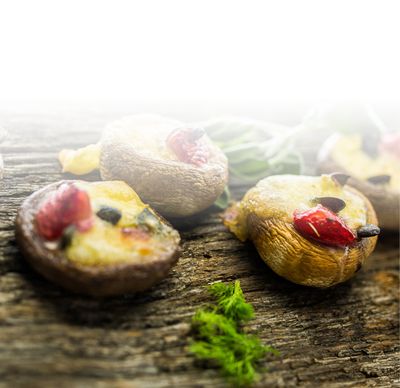The goods news: you are allowed!
The fact that pregnant women have to do without cheese completely is definitely wrong. Quite the opposite! Cheese contains lots of minerals such as potassium, phosphor, magnesium and calcium. It is also rich in trace elements, for example iron, zinc and B vitamins. Combined with a high protein content of usually 10 to 30 percent, cheese contains many important nutrients that are extremely healthy and also important for the unborn child.
Pregnant women should generally not eat raw foods. These include, meat, fish but also milk and eggs, among others. Pregnant women are accordingly better off going without raw milk cheese, white rind soft cheese and blue cheese. With the production of raw milk cheese, milk is not pasteurised or heated up to kill off any possible pathogens. It is very easy to find out whether a cheese was made from raw milk or not. types of cheesethat were made from raw milk have to be labelled “Made with raw milk”. If the cheese is bought at a cheese counter where the cheese is not packed, it is best to ask the sales assistant for advice.
Background: What is listeria?
The problem with raw food and raw milk cheese is that pathogens sensitive to heat cannot be rendered harmless through a stage in the production process and therefore are still in the food. If a pregnant woman eats these types of cheese there is a risk that triggers for listeria are absorbed too. This infectious disease is relatively rare and usually harmless for a healthy, fully grown adult. However, if it occurs in pregnant women it could result in complications for the baby.
The following generally applies: cheese that matures for a long time is a safe indicator that it is harmless to eat during pregnancy. Which is why hard cheese,that is matured for a very long time like Parmesan is also harmless for pregnant women, even though it is made from raw milk. Harmful bacteria that could trigger listeria cannot survive the long maturing time for hard cheese. However, caution should generally be exercised during pregnancy. Listeria can settle on the cheese rind, even with cheese that has been made from pasteurised milk. It is therefore advisable to cut the rind off any cheeseeaten during pregnancy, regardless of whether it is raw milk cheese or not, just to be on the safe side.
For example, if you’re cooking blue cheese as it’s part of a sauce it is harmless for pregnant women. The only condition is that it has to be heated up for at least two or better still three minutes at over 70 degrees Celsius. The bacteria that are responsible for listeria are killed off at 70 degrees Celsius. Baked Camembert, dishes with Gorgonzola sauce, oven baked cheese or pizza with blue cheese topping can therefore be eaten during pregnancy without any worries as long it is guaranteed that the cheese has been heated up for long enough.














